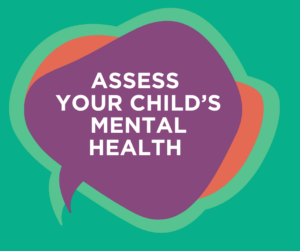How to Nurture a Child’s Mental Health

Today’s children are experiencing a mental health crisis, with rates of anxiety and depression at unprecedented levels. Mental health plays a huge role in how children perform at school, build relationships and mature as they grow older. Now more than ever, mental wellness should be a top priority for our youth. Let’s explore why mental health is so important for young people, and how caregivers can nurture mental health for the children in their care.
Why Does Mental Health Matter for Children?
Crises and stressful situations take a toll on children and adolescents in the same way as they do on adults. This becomes especially significant in children between the ages of 12 and 17, with over 15% of youth in the United States reporting they suffered from at least one major depressive episode in 2022, according to the Mental Health America Youth Ranking. According to the CDC, from March to October 2020, mental health-related emergency department visits increased by 24% for children ages 5 to 11 — and 31% for those ages 12 to 17.
Think mental health struggles are simply something a child will “grow out of,” or perhaps “just a phase”? Think again. In fact, there can be a negative ripple effect. Research indicates that mental health concerns can interfere with a child’s development, resulting in problems that can continue into adulthood.
Mental health starts at home, where a child receives the majority of their emotional care and connection. This means it is vital for their home environment to be one where a child feels safe and understood, as this can be the difference between a mentally well child and a dangerous mental health crisis.
How Can Parents and Caregivers Affect a Child’s Mental Health?
As a child’s parent or caregiver, there is a lot you can do to be there for your child and nurture their mental health! Here are seven ways you can make a difference in your child’s mental health and encourage them to feel safe opening up to you when they are struggling:
1. Listen with Intention
The first step in any mental health conversation is not to immediately problem-solve. Nurturing your child’s mental health starts with creating a safe space where they feel willing to open up about their feelings. Creating a safe space means no conversation is off-limits.
Sometimes, as caregivers, it can be tempting to jump straight to solutions. After all, we want to help! But keep in mind: You don’t need to solve the problem or have all the answers. More than anything, your child needs to know they can count on you, you are there to listen and you will respond with empathy for them.
2. Look for Opportunities to Say “Yes”
We use the word “no” frequently as caregivers, being the primary rule-makers in our children’s lives. Even when the “no” is driven by love and a desire to keep children safe, this amount of negativity can weigh heavy on anyone, let alone a child. Counteract this behavior by looking for opportunities to say “yes” to positive and fun things or find new, less negative ways to deter them from a situation. This gives children a sense of empowerment and autonomy, plus more joy.
3. Set an Example
Setting a good example for your children is more than just showing them the right thing to do or the right way to act. You can also show them a good example of how to behave when you experience difficult emotional challenges (like grief and loss) and how to be vulnerable. It’s really important for children to know that their caregivers experience struggles too, so they can see what healthy coping looks like.
While you shouldn’t rely on your child to be your emotional support, you should share openly and honestly with them about your own mental health journey so they can learn by watching you — their role model! — heal and grow.
4. Balance Support and Structure
It’s important for caregivers to have a healthy emotional connection with their children, as this creates a foundation of trust on which any rules, instructions and consequences can be established. If your child trusts you to support and care for them, they are more likely to respect the boundaries and structure you create in their life, even when they don’t like the outcome.
5. Give Permission to Fail
It’s okay (and sometimes even good) to fail! Your child will not succeed at everything they do in life, and these failures are opportunities to learn how to process negative emotions. Rather than punishing a child for failure, encourage them to do their best and help them work through how they feel about the failure and what they can do better next time.
6. Encourage Holistic Health
 Taking care of our mental health, at its core, is much the same as taking care of our physical health. To be mentally and physically well, we need to have a healthy diet, regular exercise, sufficient rest and responsible technology use. It’s also important to encourage your child to cultivate a healthy social life with strong friendships and plenty of social activities. When you provide your child with proper nutrition, rest and opportunities to care for their health as a whole, they will have the physical and mental stamina to face challenges.
Taking care of our mental health, at its core, is much the same as taking care of our physical health. To be mentally and physically well, we need to have a healthy diet, regular exercise, sufficient rest and responsible technology use. It’s also important to encourage your child to cultivate a healthy social life with strong friendships and plenty of social activities. When you provide your child with proper nutrition, rest and opportunities to care for their health as a whole, they will have the physical and mental stamina to face challenges.
7. Pay Attention and Check In
Your child gets regular check-ups with a medical provider to ensure they are physically healthy, but is there anyone in their life checking up on their mental health? As a parent or caregiver, you can assess your child’s mental health regularly to ensure they do not require additional aid. It may even be wise to have them see a mental health professional occasionally to make sure they are feeling well.
Looking for Further Mental Health Support for Your Child?
As a caregiver, you do not have to walk this path alone! Mental health can be a difficult thing to care for, especially in stressful life circumstances. At KVC, we are passionate about helping Kentucky families get the care and support they need, especially in a crisis situation.
Learn more about our Behavioral Health Services here, and please reach out with any concerns about your child’s mental well-being.



